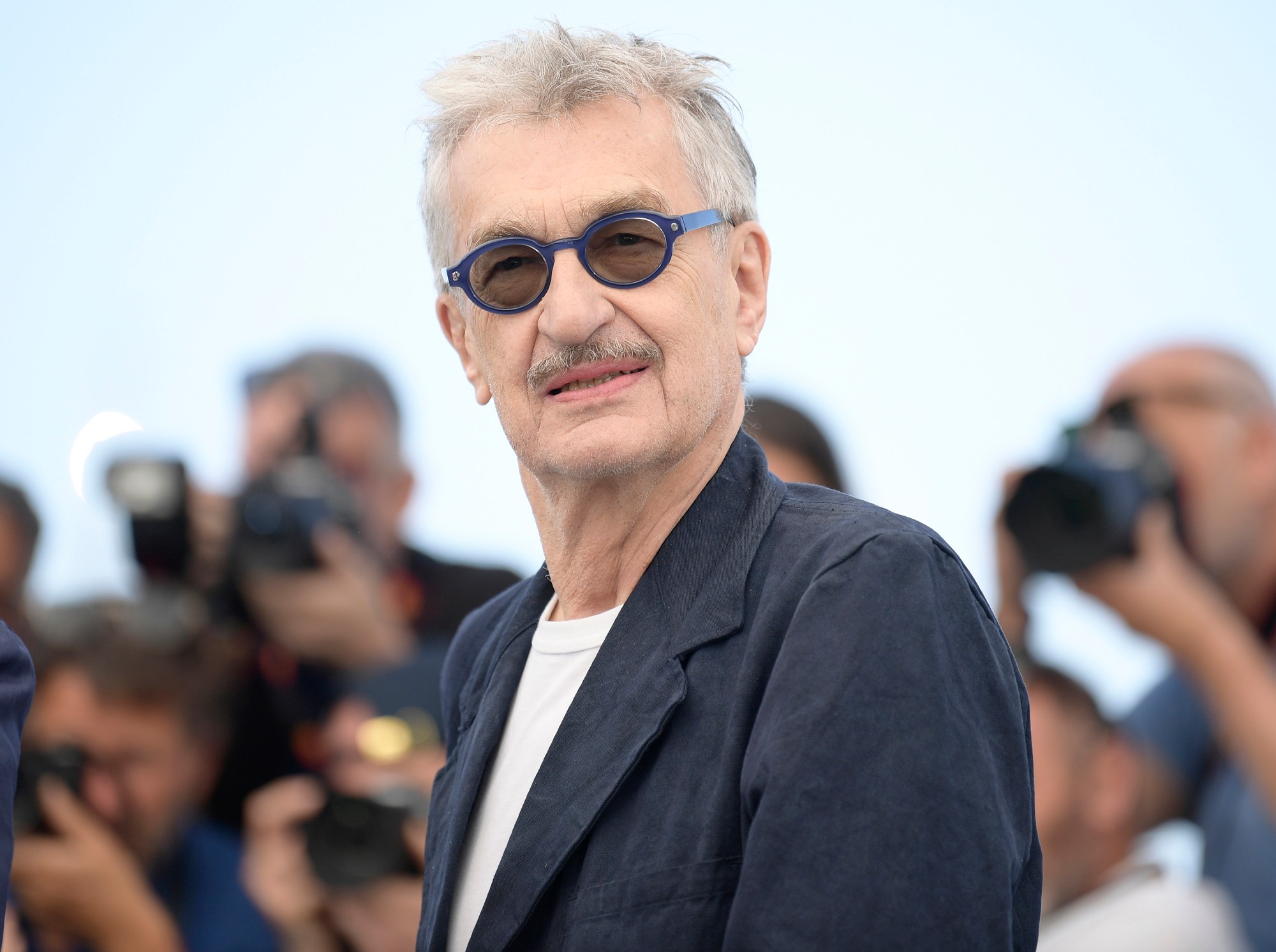
- Festivals
Cannes: Wim Wenders Makes Triumphant Return with Two New Films
German filmmaker Wim Wenders has a rich history with the Cannes Film Festival. In 1982 he made a short documentary, Room 666, in which he asked festival attendees Jean-Luc Godard, Steven Spielberg and other notable directors about the future of cinema.
In 1984, Wenders won the Palme d’Or for his road movie Paris, Texas (which returned in 2014, as part of the festival’s annual “Cannes Classics” section). In 1993, he won the Grand Jury Prize for Faraway, So Close! — a lyrical sequel to his 1987 film Wings of Desire, which had in fact picked up Best Director honors at the festival six years prior.
In the years since, Wenders has remained a fixture at Cannes, debuting other of his films there, serving as a juror (including main competition jury president in 1989, and Caméra d’Or jury president in 2003), and even appearing just as an interested and invested cinephile. So it’s no surprise that the 2023 iteration of one of the world’s most famous film festivals is once again welcoming back Wenders to the Croisette with open arms.
The 77-year-old legend’s latest documentary work, Anselm, made its world premiere at a special screening on May 17, the first full day of the festival, at the Grand Théâtre Lumière. A stirring portrait of one of the world’s greatest contemporary artists, Wolf Prize-winning painter and sculptor Anselm Kiefer, Wenders’ film once again indulges the director’s deep fascination with 3-D, and in particular, how to use this technology to expand an understanding of other forms of fine art, wresting it away from the clutches of only orgiastic action extravaganzas.
Shot over the course of two years, the movie is a companion piece of sorts to his Oscar-nominated 2011 film Pina, about German dancer and choreographer Pina Bausch. Anselm explores Kiefer’s thematic preoccupation with both myth and the darker nature and realities of 20th-century history, while also using mixed media and a variety of recreations to shed light on his life and the very form of his work. The result — interweaving past and present, and stunningly breathing multi-dimensionality into archival footage — is an immersive treat. Wenders is already a three-time Academy Award nominee for Best Documentary Feature, and the pedigreed Anselm could add to his list of honorifics in the nonfiction realm.
On the narrative side of the cinematic coin, Wenders also enjoyed the debut of his other new film, Perfect Days, as an official competition selection. Set in Tokyo, the movie is an affectingly restrained drama about a dedicated public restroom janitor, Hirayama (Koji Yakusho), whose life unfolds in a series of simple, ritualistic acts: tending his plants, visiting a local bathhouse, listening to old cassette tapes of American music during his commute, and taking photos with an old camera during his lunch break. As viewers follow these daily routines, the film gradually reveals more about Hirayama’s past and circumstances, including his relationship with his family and feelings for the hostess at a favorite restaurant.
Wenders makes use of a 1.33:1 aspect ratio to dial up the intimacy already baked into the movie’s spare narrative, and with his expressive eyes and sensitive performance, Yakusho makes a wonderfully appealing guide for this slice-of-life work in which receptive audiences are tenderly reminded that incredible depths exist for even the most invisible characters. With an end sequence that recalls the credits of Michael Clayton and Call Me By Your Name, Wenders and Yakusho pack a lifetime’s worth of joy, thankfulness, sorrow, regret, and everything in between into the movie’s closing frames.
In somewhat parallel fashion, with these two new works at the 2023 Cannes Film Festival, Wenders once again showcases his stunning range and humanistic impulses as a filmmaker.

